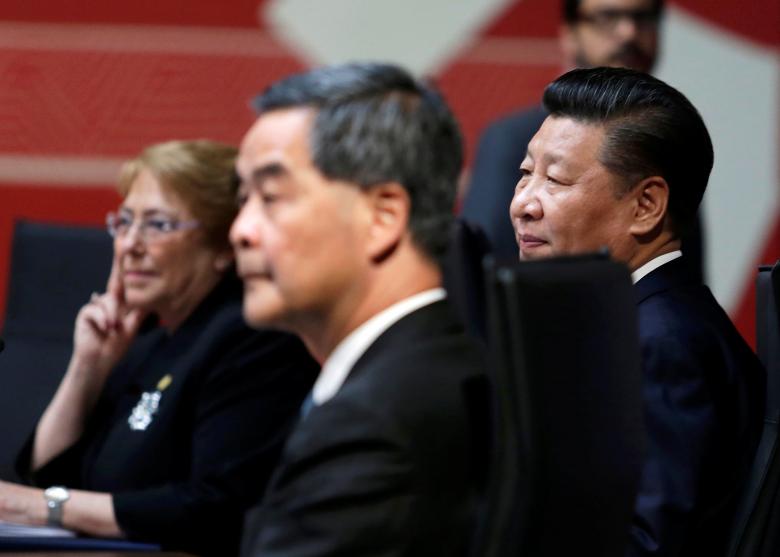China's Xi calls on HK leader to maintain stability
Chinese President Xi Jinping has called on Hong Kong Chief Executive Leung Chun-ying to uphold national unity and maintain social and political stability, state news agency Xinhua said on Monday.
A meeting of the two political leaders on the sidelines of the APEC summit in the Peruvian capital Lima comes amid deepening concerns in Beijing over a fledgling independence movement in Hong Kong and recent street protests in the city.
Xi said he hopes that Leung "resolutely upholds national unity and maintains social and political stability", said Xinhua, adding Xi offered Leung and his government full support.
Hong Kong leader Leung told reporters Xi made "forceful" comments on the issue of Hong Kong independence.
"Very simply put and very forcefully, the president said there is no room whatsoever for Hong Kong independence under the 'one country, two systems' arrangement," Leung said, adding they did not discuss the issue in length during the meeting that lasted 45 minutes.
Hong Kong's High Court last week backed a government demand to bar two recently elected lawmakers from the city's legislature, after the court and Beijing both ruled they had insulted China when taking their oath of office.
Before the ruling, about 2,000 lawyers protested against Beijing stepping in and interpreting the city's mini-constitution in the middle of the lawsuit, a move they said interfered with Hong Kong's judicial independence.
Leung said Xi affirmed that the legal interpretation was "necessary."
Democratically elected Yau Wai-ching, 25, and Baggio Leung, 30, sparked controversy last month when they displayed a banner declaring "Hong Kong is not China" and substituted derogatory terms for "China" while taking their oaths.
Demonstrators angry at Beijing's rulings clashed with riot police in early November, unfurling umbrellas to block pepper spray in scenes reminiscent of the 2014 pro-democracy protests, dubbed the "Umbrella Movement", that brought key intersections to a halt for weeks on end.
Hong Kong, a former British colony, returned to China in 1997 under a "one country, two systems" agreement that ensured its freedoms and wide-ranging autonomy, including a separate legal system.
But Communist Party rulers in Beijing have ultimate control, stepping in to interpret the Basic Law, and some Hong Kong people are concerned they are increasingly interfering to head off dissent.






